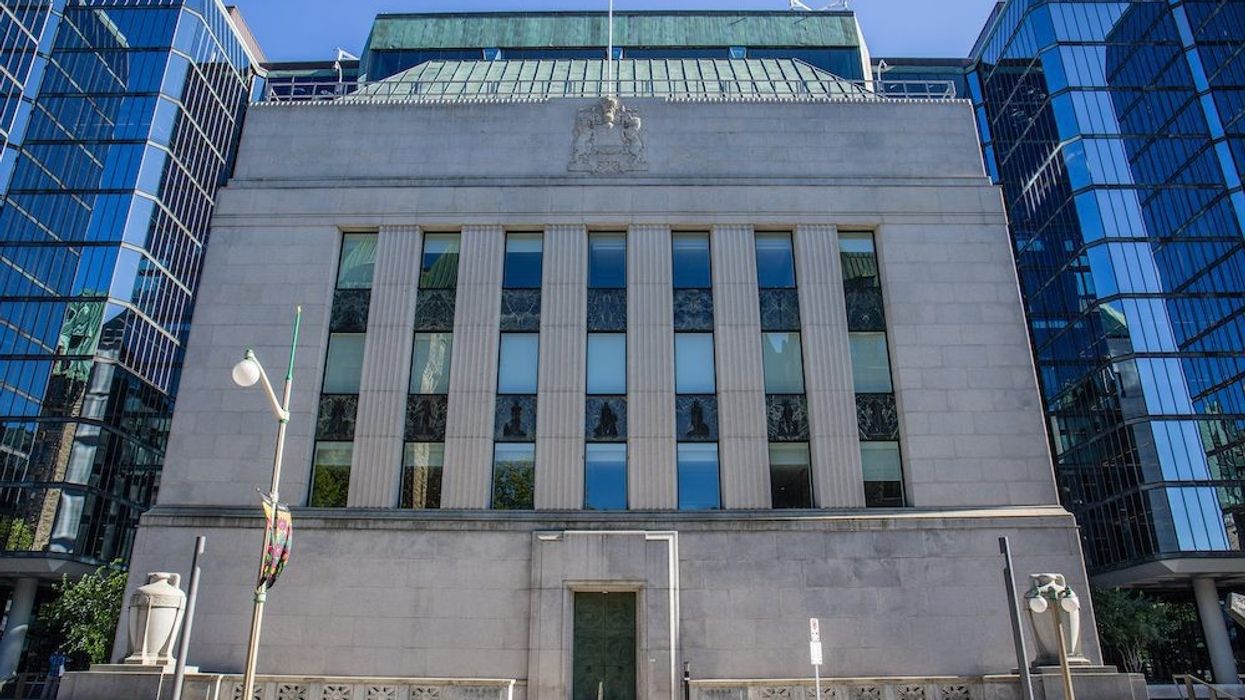Rapidly rising prices at Canada's gas stations and grocery stores are having a greater impact on households than the Bank of Canada's recent rate hike, a National Bank of Canada economist warns.
In a note to clients obtained by BNN Bloomberg, National Bank Deputy Chief Economist Matthieu Arseneau says that the surge in inflation seen since the start of the year could have the same impact as three 25-basis-point hikes from the Bank of Canada.
According to BNN Bloomberg, Arseneau stated that a 25-basis-point hike would raise debt servicing costs by about $3.5B. This is equivalent to about one-third of the price pressure that the hikes in food and fuel costs have caused.
“Consumers, meanwhile, have been rapidly losing purchasing power since the start of the year, notably through their energy bills,” Arseneau said. “By our calculation, the effect on households of food and gasoline price rises in H1 2022 could be equivalent to the impact of a 78-basis-point hike in the Bank of Canada policy rate on debt service cost.”
Just last week, new numbers from Statistics Canada revealed an inflation surge of 5.7% year-over-year in February -- a number above the 5.5% initially forecast by economists. It was also the largest gain seen since August 1991 when inflation surged 6%. The February numbers showed that Canadians were paying 32.2% more at the pump than they did last year, and 6.9% more than in January. Food prices, on the other hand, spiked 7.4% annually — the largest yearly increase since May 2009 – and were up 6.5% from January.
Although inflation was largely driven by these higher gasoline and grocery prices, shelter costs, which include both owned and rental accommodation, also increased 6.6% — the fastest pace seen since 1983. Other home-related costs, including the “homeowner’s replacement cost” — tied to the price of new homes and other accommodation expenses, including realtor commissions on sales – made their presence known as well, rising 13.2%.
Earlier this month, in an attempt to combat rising home prices, the Bank of Canada implemented an increase to its Overnight Lending Rate, upping it by 25 basis points to 0.5%. This marked the first rate increase since 2018, and several more are expected to take place throughout the rest of the year.
Unfortunately, inflation isn't expected to slow any time soon, with the Bank of Canada, as well as several leading economists, predicting that the trend will continue in the near future.
“All told, inflation is now expected to be higher in the near term than projected in January,” a March release from the Bank of Canada reads. “Persistently elevated inflation is increasing the risk that longer-run inflation expectations could drift upwards. The Bank will use its monetary policy tools to return inflation to the 2% target and keep inflation expectations well-anchored.”
A March 15 report from BMO Economics predicts that inflation will be influenced by the same trend in the U.S., where the consumer price index is expected to hit 8.6% by April. “Likewise, Canada’s inflation rate is expected to rise from 5.1% y/y in January to 6.0% in April, before falling back to 5% in December and below 3% late next year. While wage growth remains calm in Canada, rents are likely to chug higher due to surging house prices. Inflation in both countries will likely stay above pre-virus levels even at the end of next year, and this assumes resource prices retreat from current levels. We expect WTI oil prices to average $100 a barrel this year and $85 in 2023,” states BMO’s report.





















